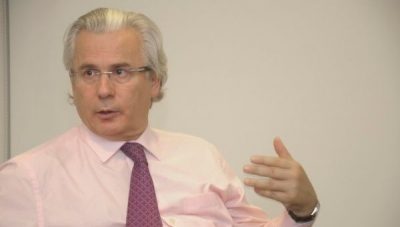Baltasar Garzon to be Evo Morales’ Lawyer to Invalidate Warrant
The Spanish jurist acquired international renown in the late 1990s when he succeeded in arresting the Chilean dictator Augusto Pinochet.

Bolivia’s President in exile Evo Morales Thursday announced that Spanish jurist Baltasar Garzon will represent him in the efforts to invalidate the arrest warrant issued by the coup-born government.
“We formed an international team with Baltasar Garzon… We will act legally against this arrest warrant, which is neither constitutional nor legal,” Morales said.
This announcement was made from Buenos Aires, Argentina, where the Movement Towards Socialism (MAS) leader resides with political refugee status.
Former judge Baltazar Garzon acquired international renown in the late 1990s when he succeeded in arresting the Chilean dictator Augusto Pinochet and attempted to convict him of crimes against humanity committed during his government (1973-1990).
On Dec. 18, Bolivia’s coup-born regime led by Jeanine Añez issued an arrest warrant against Morales and accused him of sedition and terrorism.
To justify this paradoxical accusation, the U.S.-backed de-facto regime presented a recording in which Morales was supposedly heard asking his supporters to fight against the Añez regime and block the roads to prevent the supply of food to the cities.
After being forced to leave his country due to a military uprising, which was later discovered to be motivated by economic rewards that the Bolivian far-right promised to security officers, Morales traveled to Mexico where President Andres Manuel Lopez Obrador granted him political asylum.
Bolivia. La hipocresía de la UE y otros gobiernos del mundo justifican rupturas violentas de la democracia cuando no se trata de sus aliados. Lo que ocultan son sus negocios e intereses. Bolivia de un golpe* https://t.co/Oo1gnqAg2X vía @equaltimes @CSA_TUCA @marianovazkez
— Iván González (@IvanGonzalva) December 20, 2019
Bolivia: The hypocrisy of the European Union (EU) and other governments of the world justifies violent ruptures of democracy when their allies are not the ones affected. They are hiding their business and interests. Bolivia lives a coup. The meme reads, “Bolivia at a glance. The international community is setting a dangerous precedent: the lack of unanimous and firm condemnation of coups d’etat.”
Subsequently, once Alberto Fernandez assumed the presidency of Argentina on Dec. 10, the MAS leader traveled to this South American country and requested political refugee status.
“I have so much desire to be in Bolivia; however, comrades, leaders, and authorities permanently come to visit me… The best way to operate is still from Buenos Aires,” Morales said.
The contact between the Bolivian leader and former Spanish judge is not new. On Nov. 13, Garzon submitted to the Inter-American Commission on Human Rights (IACHR) a petition to allow Morales to be a candidate in the 2020 elections.
“We submitted this initiative due to the serious situation of violence in Bolivia, which forced President Evo Morales to go into exile in Mexico,” Garzon said, as reported by local outlet La Razon.
At that time, the Spanish lawyer clearly stated that what was happening in Bolivia was the consequence of a coup d’etat.
“The military… rebelled and seized power. Therefore it can be said, without any doubt, that it has been a military coup. And this we express in the petition before the IACHR.”
*
Note to readers: please click the share buttons above or below. Forward this article to your email lists. Crosspost on your blog site, internet forums. etc.
Featured image is from Wikimedia Commons – Victor Santa Maria

